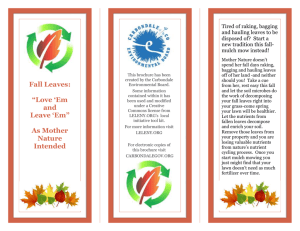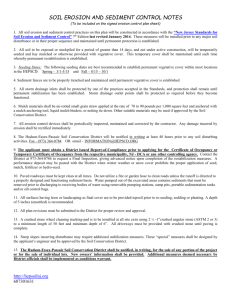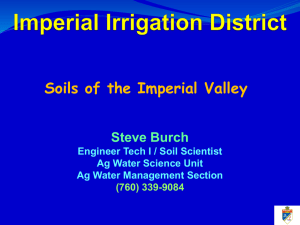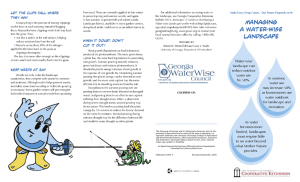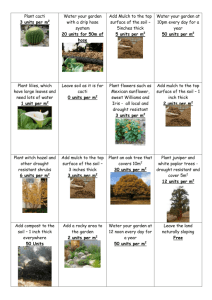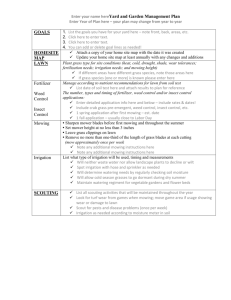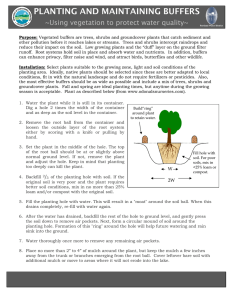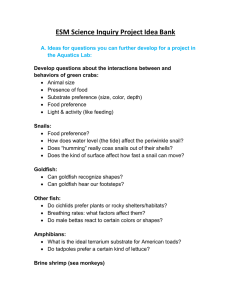Perennials for the High Desert
advertisement
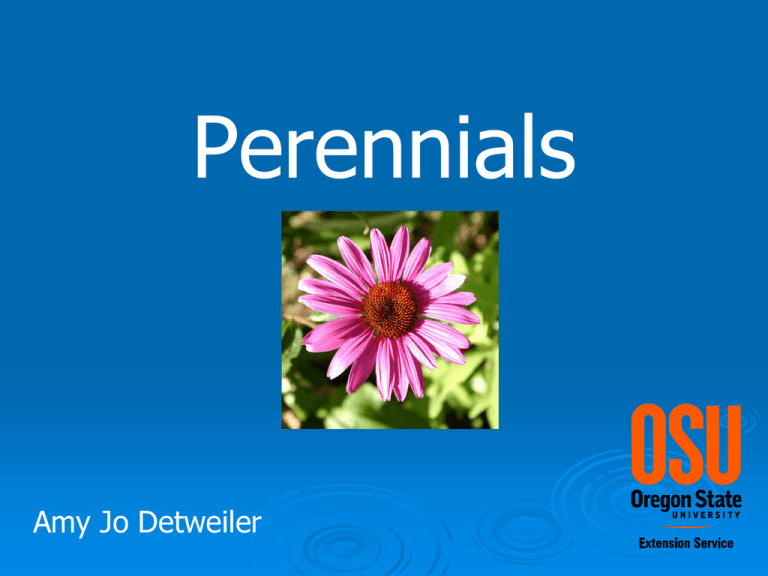
Perennials Amy Jo Detweiler Perennial • plants that live for 2+ years • once mature they flower annually Herbaceous • non-woody plants that die back and go dormant in winter Perennial lifespan • depends on type of plant, soil, climate, care, etc. Perennial types: ground covers • biennials • border plants • rock/alpine plants • Perennial types: herbs • bulbs • ornamental grasses • water plants • ferns • Planning & Design • research • visit nurseries, gardens • neighbors • consider time Planning & Design • yourself/professional • consider site • environment Stats for The Dalles • USDA Hardiness Zone 6-7 • microclimates/frost dates • annual precipitation ~ 14” • soils – sandy loam/silty loam climate summary at http://www.ocs.orst.edu/ Design principles balance • contrast • repetition • harmony • unity • dominance • Design Elements • color • flower • texture • fragrance Design Elements bloom time • seasonal interest • function • mature size • Formal Design • symmetrical shaped beds • straight lines Informal Design • asymmetrical shaped beds • free-flowing beds Low Maintenance non-invasive • resistant • sturdy stems • adaptable • short/long life span • Do a design • sketch out • use a garden hose • consider hydrozones Site considerations soil • sun/shade • wind • bed/border • existing features • viewpoint • Plant material • nurseries, • seeds • neighbors • mail order greenhouse Soil • provides nutrients • improves aeration • address drainage concerns Soil • add organic matter • 1/2-1/3 • improve water holding capacity Prepare the hole • twice as wide as container, same depth • amend with soil Containers • check out roots • avoid planting dry root balls Following planting • water new plants in well • irrigation type • root stimulant optional • mychorrhizae Mychorrizae Watering plants • water deeply less often • avoid water on foliage • once established, as needed Drip line Irrigation Test • dig down 6-8” • ball up soil Using Mulch • reduce weeds/weed cloth • prevents desiccation • prevents erosion Using Mulch • covers bare ground • 2-5” deep • types Maintenance fertilization • weeding • cutting back • transplanting • dividing • Maintenance • winter watering ? • pest management • reapply mulch as needed Fertilizing avoid direct contact with the roots • wait for establishment • increase the amount of nutrients available to the plant • Fertilizing • spring feeding • avoid late summer, early fall feedings • slow-release, phosphate Weeding • weed cloth • mulch • within a bed Cutting back • encourage repeat bloom • promote new growth • control size Transplanting • in spring or fall • redesigning • mislocation Why divide? • decline in vigor • becomes invasive • for propagation How to divide • every 3-5 years • early spring, late summer • dig around drip line • avoid root damage Propagation • seeds • stem cuttings • root cuttings • grafting(advanced) Seeding light soil • moisten soil • sprinkle seeds • cover with thin layer of soil • repot when larger • Stem cuttings in morning • cut 3-5” • remove bottom leaves • dip in hormone • place 1/2-1/3 in soil • clear plastic • Root cuttings 1/4’+ wide roots, 3-4” long • when plant is dormant • plant upright • when growth is seen transplant • Other uses • cut flowers • dried flowers Website • http://oregonstate.edu/dept/ldplants/

